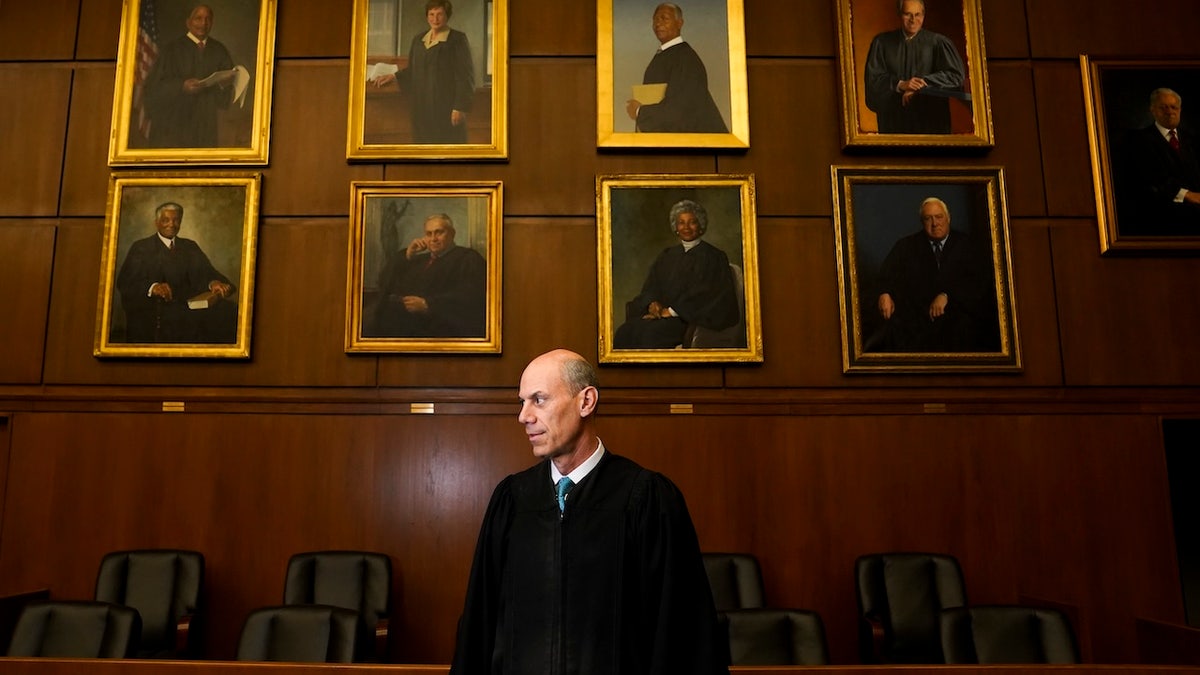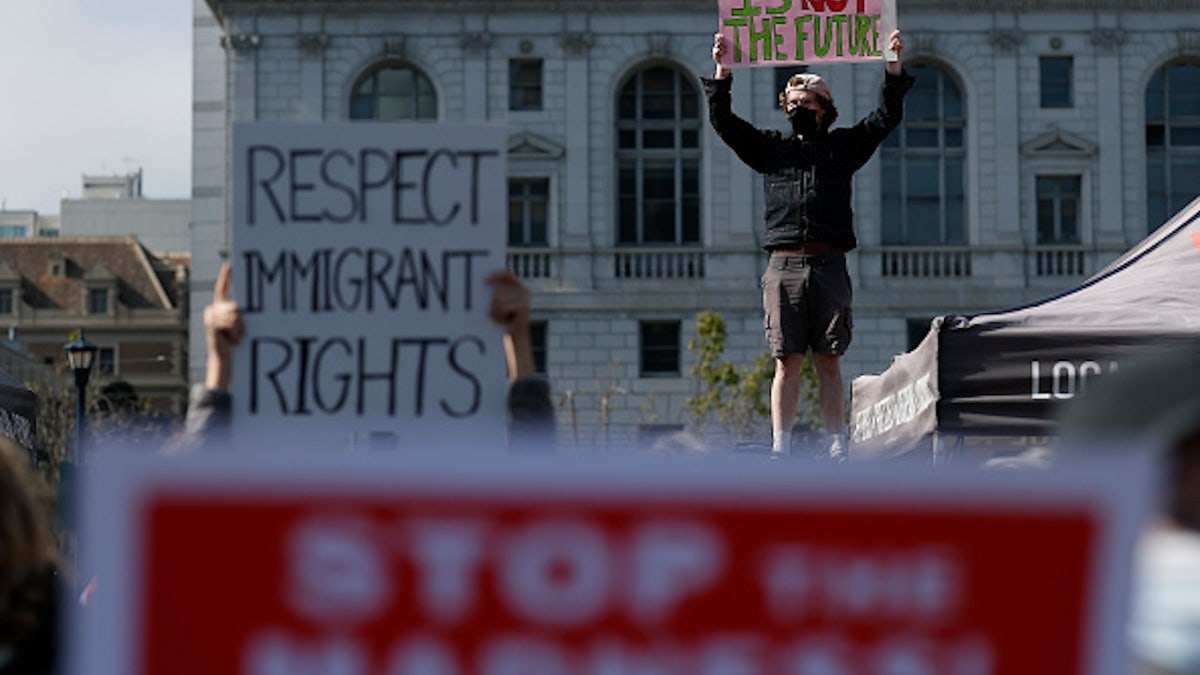Appeals court grants Trump short-term win over Boasberg in immigration ruling
NEWYou can now listen to Fox News articles!
A U.S. appeals court agreed to pause a lower court order requiring the Trump administration to provide due process to hundreds of Venezuelan migrants deported from the U.S. to El Salvador under the 1798 Alien Enemies Act in a near-term victory for the Trump administration.
The U.S. Court of Appeals for the District of Columbia Circuit granted the Justice Department’s request for an administrative stay, putting on hold a lower court order handed down last week by U.S. District Judge James Boasberg.
Last Wednesday, Boasberg ruled that the migrants deported solely on the basis of the Alien Enemies Act immigration law did not have prior notice of their removals or the ability to challenge their removals in court, in a violation of due process.
He ordered the Trump administration to provide migrants deported under the law the opportunity to seek habeas relief, and the opportunity to challenge their alleged gang member status that the administration had pointed to as the basis for their removal.
WHO IS JAMES BOASBERG, THE US JUDGE AT THE CENTER OF TRUMP’S DEPORTATION EFFORTS?

Boasberg had given the Trump administration through Wednesday to submit to the court plans for how it would go about providing habeas relief to the plaintiffs in CECOT, the maximum security prison in El Salvador.
This week, lawyers for the Trump administration filed an emergency motion to stay the ruling in both the U.S. District Court and the U.S. Court of Appeals for the D.C. Circuit on Tuesday, one day before that plan was due, seeking additional time to respond to the underlying merits of Boasberg’s ruling.
Justice Department officials argued that Boasberg did not have jurisdiction in the case, as the migrants are detained in El Salvador, and said his order interfered “with the president’s removal of dangerous criminal aliens from the United States.”
Boasberg’s final order last week did not attempt to determine who had jurisdiction. Instead, he set the matter aside, and said the individuals could remain in custody at CECOT, so long as the government submitted plans to the court for how they would be provided a chance to challenge their removal under the Alien Enemies Act.
The Trump administration still took umbrage with that ruling, which it blasted earlier this week in their appeal as “unprecedented, baseless and constitutionally offensive.”
SUPREME COURT GRANTS TRUMP REQUEST TO LIFT STAY HALTING VENEZUELAN DEPORTATIONS

“The district court’s increasingly fantastical injunctions continue to threaten serious harm to the government’s national-security and foreign-affairs interests,” they told the circuit court.
The court “correctly ruled that the United States lacks constructive custody over the aliens held at CECOT and therefore that this Court lacks jurisdiction over their habeas claims,” attorneys for the Justice Department said in their motion. “That should have been the end of this case.”
That order sparked fierce backlash from senior Trump officials, who have blasted Bosaberg and other federal judges who have ruled in ways unfavorable to them as “activist judges.”
Boasberg, however, was the first federal judge to try to block Trump’s attempt to use the law to summarily deport certain migrants to El Salvador earlier this year, putting him squarely in the crosshairs of the Trump administration.

On March 15, he granted a temporary restraining order attempting to block the first wave of deportation flights to El Salvador, and ordered the administration to “immediately” return to the U.S. all planes that had already departed.
That did not happen, however, and the planes landed hours later in El Salvador.
CLICK HERE TO GET THE FOX NEWS APP
In the months since, Boasberg attempted to hold various fact-finding hearings to determine who knew what, and when, about the flights.
He later found probable cause to hold the administration in contempt of the court, citing the government’s “willful disregard” for his March 15 emergency order, though those proceedings were later halted by a federal appeals court.
